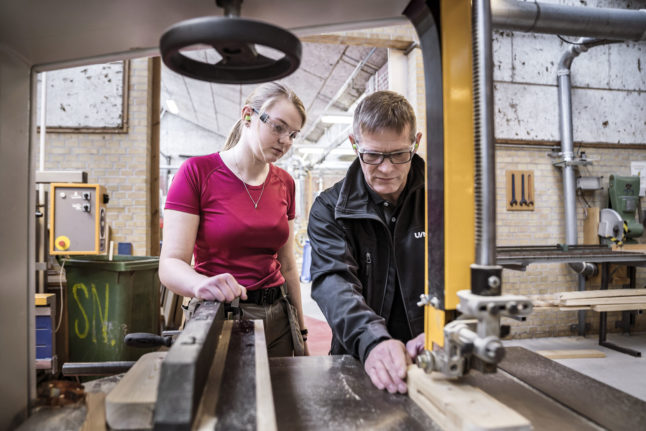The number of people who have applied for vocational training programmes, erhvervsuddannelser in Danish, has fallen to 19.4 percent this year, down from 20 percent in 2022 according to figures from the Ministry of Children and Education.
The increasingly low number of applicants is concerning and measures must be taken to better inform young students about their education and career options according to the Confederation of Danish Industry (Dansk Industri, DI).
The vocational programmes themselves should also be reformed if they are to become more attractive to young people and help fill gaps in the Danish labour market, the organisation argues.
DI vice director Signe Tychsen Philip said that young people often reject the chance to study a trade because they are not well informed about the opportunities such an education can provide them with.
“We have to recognise that there is still too much lacking among young people, their parents and adults in relation to what vocational educations are and what kind of working life they offer,” Philip said.
“There’s a lot that must be corrected if more people are going to see what our vocational programmes can give,” she said.
A reversal of the trend would need more case-based teaching at schools, more visits to workplaces and better cooperation with businesses, DI says.
“That would give the opportunity to see which ways you can go afterwards. Both after elementary school, and after upper secondary school. In other words, it would give children and young people better tools to make choices with,” Philip said.
Organisation SMV Danmark, which represents 18,000 small and medium-sized businesses across the country, went a step further calling the latest figures “catastrophic”.
“Good luck finding a builder in future when you need to have your house insulated or a carport constructed,” senior consultant Kasper Munk Rasmussen said in a written comment.
Rasmussen also backed the call for education reforms to improve enrolment numbers.
“As these figures demonstrate, elementary school today is just a motorway towards upper secondary school [gymnasiet in Danish, ed.]. We have to change this,” he said.
Such reforms would cost billions of kroner according to SMV Danmark.
“We are looking at a falling number of tradespeople because there are more now retiring than there are young people choosing to take these educations,” Philip said.
The Economic Council of the Labour Movement (Arbejderbevægelsens Erhvervsråd) joined the chorus of organisations to express concern over the trend.
“It is a problem for both welfare and green energy transition if we don’t get more skilled trades labour,” head of analysis Emilie Agner Damm said in a written comment.



 Please whitelist us to continue reading.
Please whitelist us to continue reading.
Member comments